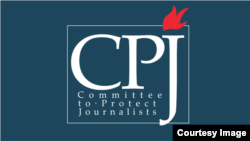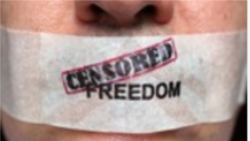The United Nation’s Committee on Non-Governmental Organizations recently took a step that can only be seen as an insult to one of the UN’s key founding documents: the Universal Declaration of Human Rights -- in particular, article 19, which enshrines the right to freedom of opinion and expression.
The NGO Committee voted to deny the Committee to Protect Journalists, a prominent press freedom organization dedicated to defending the right of journalists to report the news without fear of reprisal, consultative status at the UN. Such status would have allowed CPJ to participate in certain UN meetings and conferences, including at the Human Rights Council in Geneva.
The vote was 6 in favor of granting CPJ accreditation, 10 against, and 3 abstentions. Countries voting in favor included Mauritania, Greece, Uruguay, and Guinea. Countries voting against included Russia, China, Sudan, Pakistan, and Venezuela.
The United States strongly supported CPJ’s bid for accreditation. Before the vote, U.S. Representative for Economic and Social Affairs Sarah Mendelson pointed to the importance of the role of civil society organizations in providing an independent voice on matters of public policy and applauded the healthy critique offered by the CPJ to nations around the world, including the United States.
After the vote, U.S. Ambassador to the United Nations Samantha Power called the denial of CPJ’s accreditation “deeply disappointing” and said that the rejection of CPJ accreditation “is part of a larger pattern,” noting that CPJ’s request for consultative status had been repeatedly deferred since the organization first applied in 2012.
“It is increasingly clear that the NGO Committee acts more and more like an anti-NGO committee,” Ambassador Power said, adding that the United States will bring the matter up again for a vote before the full 54-member Economic and Social Council when it meets in July.
“Countries have to decide which side they’re on,” said Ambassador Power. “Are they on the side of free expression and organizations to try to advance that cause? Or are they hostile to Article 19 [of the Universal Declaration of Human Rights]? And I think if you look at the list of countries who noted ‘no,’ one learns a few things.”
















